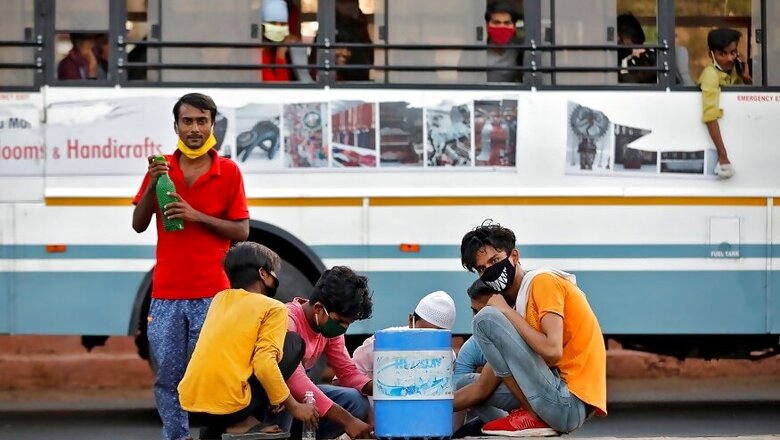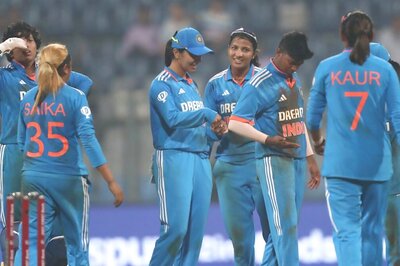
views
Citizens of Bihar have a dual task at hand. Currently in the midst of braving a draining global pandemic, they might have to elect a government within six months. Studies show that the psychological impact of Covid-19 on voters may result in a conformist attitude that may help a more conservative political view.
Apart from other factors, elections in India are contested on the loud pretense of development and more realistically on the basis of silent engineering of caste. The one state for which the latter holds rock-solid firm is Bihar. However, this year psephologists are also accounting for the psychological impacts of the unprecedented situation.
Will psychological footprint favour an ideology?
Pandemics are generally unprecedented for a generation. They take a serious toll, for the masses, mostly on the mind. Also, human brains are evolved for socialisation. Any attempt at quarantine for an extended period of time can put individuals off the grid.
There have already been reports of the pandemic resulting in heightened anxiety, with immediate effects on mental health. However, the constant feeling of threat may have other, more insidious, effects on psychology of people.
Studies show that the fear of contagion leads individuals to become more conservative and less accepting of experimentation. They prefer quietly falling in line, however long, rather than taking on eccentricity. Daily reminders of the dangers associated with the disease and its lessening proximity may even sway political affiliations.
Mark Schaller, Department of Psychology, University of British Columbia, wrote that humans evolved a set of unconscious psychological responses – which he has termed the “behavioural immune system” – to act as a first line of defence to reduce contact with potential pathogens during a pandemic.
The disgust response is one of the most obvious components of the behavioural immune system. For example, when individuals avoid things that smell bad or food that they believe to be unclean, they are instinctively trying to steer clear of potential contagion.
The behaviour is similarly portrayed in people's preferences for policies. Any institution, political or otherwise that promotes and safeguards the behavioural immune system finds automatic popularity among the masses during uncertain times such as the one that presently exists.
The term of the present Bihar Assembly ends in November. In March, the poll panel had deferred Rajya Sabha elections to 18 seats due to the coronavirus outbreak. No fresh dates have been announced yet.
The Election Commission has taken note of changes made by South Korea in procedures while holding its parliamentary polls amid the coronavirus outbreak and said it will consider modifications as required and suited to the Indian context wherever elections need to be held amid Covid-19.
Meanwhile, studies and polls in America have also shown clear connection with the pandemic and political inclinations.
A February 2020 poll in the United States have shown that attitudes to Covid-19 risk are closely tied to voting behaviour, with Republicans showing much less concern about the outbreak.
According to a study published in 2009 named "Threat causes liberals to think like conservatives" when people with liberal attitudes experienced physical threat their political and social attitudes became more conservative.
In another study, during an H1N1 flu epidemic, researchers reminded people of the dangers of the flu virus and then asked them their attitudes towards immigration, after which they were asked whether they had been vaccinated against flu yet. Those who hadn’t received their anti-flu shot were more likely to be anti-immigration than the ones who felt less threatened.
There is a similar situation currently laying out in Bihar. With migrant workers returning home in large numbers, in many villages across the state, inhabitants and local leaders have barricaded the entry and exit points of villages, and placed posters that say: “Outsiders are not allowed.”
There have also been several cases where villagers have reported workers to the Police on their return.
It is only fair for experts to link fear with immediate political inclination. Whether that will eventually impact the elections is for future times to tell.
“The more profound effects may not have anything to do with [the behavioural immune system] but more directly to do with the perception of just how well government officials are or are not responding to the situation,” wrote psychologist Mark Schaller.
Will parties be able to set political pitch for show of strength?
Added to this, against the tradition of noisy, mega rallies in Bihar, this time both Janata Dal (United)-Bharatiya Janata Party (BJP) alliance and the opposition may have to be satisfied with a watered down version of them or devise an ingenious way to influence voters.
Campaigns to reach out to voters and strengthen political presence in multiple constituencies have been put on hold across all parties.
Tejashwi Yadav's 'Berozgari Hatao Yatra' was forced to stop. Yadav has been holding rallies across the state to corner Chief Mister Nitish Kumar on the dismal state of employment in Bihar. He is currently the leader of opposition in the state assembly and is the former deputy chief minister.
A two-day training session of the RJD leaders and members scheduled for March 14-15 was also cancelled. Lok Janshakti Party chief Chirag Paswan has also had to put a stop to his 'Bihar First, Bihari First yatra’.
BJP is also missing out on the opportunity to expand the party's reach in the state. March, April and May were crucial to the BJP as the party had planned multiple programmes and events in these three months. However, due to the lockdown, these events could now stand cancelled.
Data from surveys conducted by Lokniti, a research programme at the Centre for the Study of Developing Societies (CSDS), shows that final campaign period is critical for parties in India.
A substantial section of the Indian electorate decides whom to vote for during the campaign period or just on the eve of voting. In the National Election Study 2014 (NES 2014), about one-fifth of respondents revealed they decided whom to vote for during the campaign period, while 27% said they made up their mind either on election day or just a few days before.




















Comments
0 comment